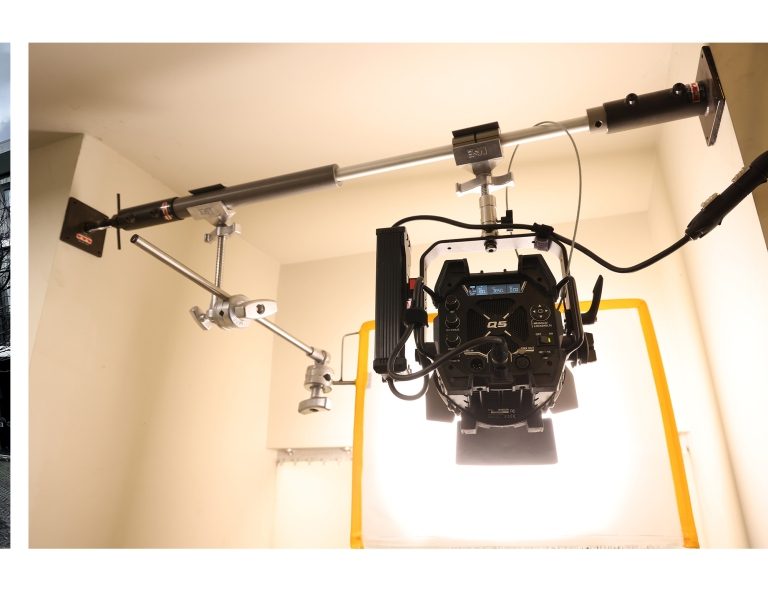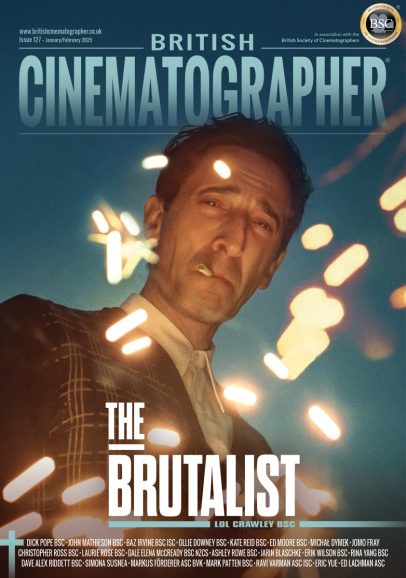
The BFI, filmmakers and industry leaders overwhelmingly welcomed the introduction of a 53% expenditure credit (equating to a tax relief of approximately 40%) for UK film productions with a budget up to £15m.
The intervention was announced today in the Government’s Spring Budget to support this vital, but severely challenged, part of the UK’s film industry. This follows work from the BFI and industry and Pact’s proposal to model how tax relief could be made more effective and is welcomed by filmmakers including Christopher Nolan, Emma Thomas, Idris Elba, Tilda Swinton, Edgar Wright, Mike Leigh, Andrew Haigh, Tim Bevan, Eric Fellner, Barbara Broccoli, David Heyman, Kenneth Branagh, Daniel Kaluuya, Danny Boyle, Riz Ahmed, Gurinder Chadha, Sam Mendes, Steve McQueen, Elizabeth Karlsen, Alex Garland, Alfonso Cuaron, Andrea Arnold, Asif Kapadia, Emerald Fennell, Gareth Edwards, Joanna Hogg, Joe Cornish, Nida Manzoor, Paul Greengrass, Paul King, Andrew ‘Rapman’ Onwubolu, Richard Curtis, Ridley Scott, Steven Knight and David Puttnam.
Jay Hunt, BFI Chair said: “The Government’s new tax credit is a game changer for UK filmmakers, creating jobs and ensuring great British stories continue to be told. By introducing the uplifted rate, the Prime Minister and the Chancellor are fuelling the growth of the wider screen sector that contributes billions to the UK economy.”
Ben Roberts, BFI Chief Executive, saysiid:: “This is a dramatic moment for UK film, and the most significant policy intervention since the 1990s. The positive impact will be felt across our industry, and through all the new films that audiences will get to enjoy. The films we make are vital to our culture expression and creativity – they reflect a diverse and global Britain, and build careers – and we’re grateful to Government, the DCMS, the industry and our friends at Pact for working together to realise this historic initiative.
This uplift in the expenditure credit is for UK films with a budget up to £15m range (with either a UK writer, or UK director, or certified as an official UK co-production) marks a transformative moment for the sector as producers and filmmakers have increasingly struggled to finance films at this level and get them into production in the UK. Films that meet the criteria will be able to claim an increased Audio-Visual Expenditure Credit (AVEC) at 53% (up from 34%) from 1 April 2024. This recognises the crucial role that making these films play in the whole ecosystem of film – from creative risk-taking and telling stories that reflect the diversity of the UK, to developing talent working both in front of and behind the camera. (The AVEC replaces the Film Tax Relief rate which has provided 25% of qualifying UK expenditure on up to 80% of a film’s total production budget. The AVEC at 53% equates to a relief rate of approximately 40% under the Film Tax Relief.)
BFI statistics show that overseas investment in film and high-end television production in the UK has grown significantly in recent years, and last year accounted for 78% of the total £4.23 billion spent on making new productions in the UK. However, getting UK films into production budgeted under £15m has become increasingly challenging. In 2023, the spend on making UK domestic films dropped to £150m, just over 11% of the total £1.36bn spent on making new films in the UK; this downturn followed an even sharper 31% decrease in spend on the previous year. Within a highly competitive global market for film production, where countries worldwide are offering increased tax incentives, UK films are having to consider going overseas if they are to be made. As a consequence, this would limit opportunities across the UK for crews, production services and locations at a time when the sector is seeing significant investment in state-of-the-art production facilities.
The complexity of the challenges facing the sector has been investigated through BFI-published research and evidence, including An Economic Review of UK Independent Film (2022). The review recommended an increase in film tax relief specifically for independent film, would have a significant positive impact and far-reaching positive impacts for the wider sector. This report also built on the BFI’s Commission on UK Independent Film, published in 2018, which highlighted seismic shifts in the industry which were impacting UK independent film more acutely.
Following the recommendations in An Economic Review of UK Independent Film producer organisation Pact undertook detailing modelling on how the film tax relief could be made to work even more effectively for films with production budgets up to £15m, working closely with the BFI and UK Government. Modelling concluded that a 53% AVEC (approximately 40% under the Film Tax Relief) would deliver significant benefit for the UK independent film sector.
John McVay OBE, Pact CEO, said: “I’m pleased that the Government has recognised the important role the British independent film sector plays in developing key talent and sustaining jobs across the economy.
“The sector has reached a critical point and this intervention will provide a lifeline to indie film producers by allowing them to access funding which will attract key creative talent and in turn give them the ability to recoup their initial investment.”
Producers and filmmakers who have created some of the most loved films by audiences and have showcased UK filmmaking talent and creativity have universally welcomed the new level of tax relief independent UK films.
Following are comments from industry and filmmakers commenting on today’s announcement and those that have welcomed the expansion of the AVEC expenditure credit.
Christopher Nolan and Emma Thomas commented: “Independent and lower-budget filmmaking is where we had our start and where new voices and innovations vital to the entire industry are born. This enhanced tax relief builds on the incredible work already being done by British filmmakers and will create new opportunities for British crews, filmmakers and cast members for years to come.“
Riz Ahmed commented: “Independent film is so important for freedom of expression here in the UK. It’s a space where creators have liberty to pursue their artistic vision, to spotlight stories that might otherwise be sidelined, and to showcase new talent from underrepresented groups. It affords us the opportunity to explore different narratives of Britishness. At a time when it’s become increasingly difficult to get independent films financed, this additional support will be vital to ensure the dynamism and influence of British artists on the global stage.”
Gurinder Chadha commented: “Working in independent film is where I have built my career and without the support of public funding, it simply would not have been possible for me to make films such British films as Bend It Like Beckham, Bride & Prejudice and Bhaji On The Beach – films that celebrate our lives and how we seen ourselves as a rich and beautifully diverse nation. What today’s momentous news has the power to do is to open the door wider and enable more talented filmmakers with the imagination, creativity and skills to make great films, that not only reflect and contributing to both society and to the success of the wider film industry. Thank you for listening to us.”














